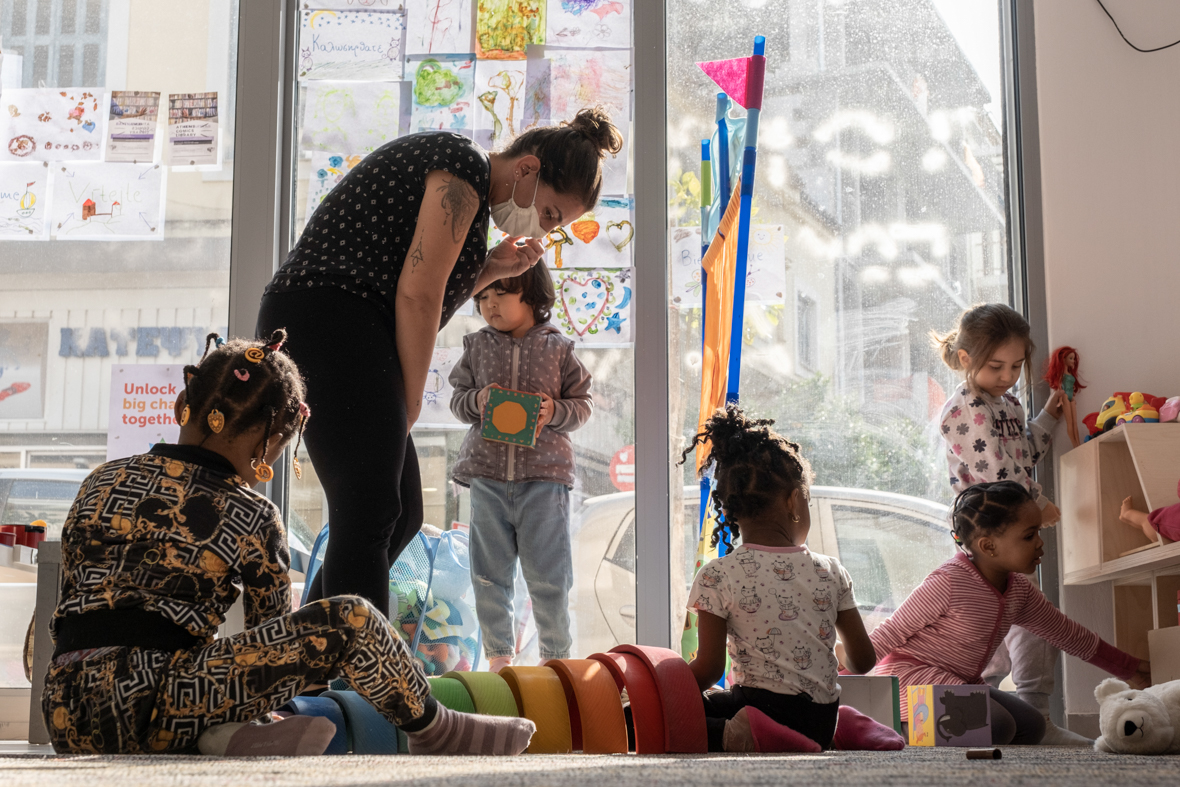
How playing and having fun helps young children learn skills and develop
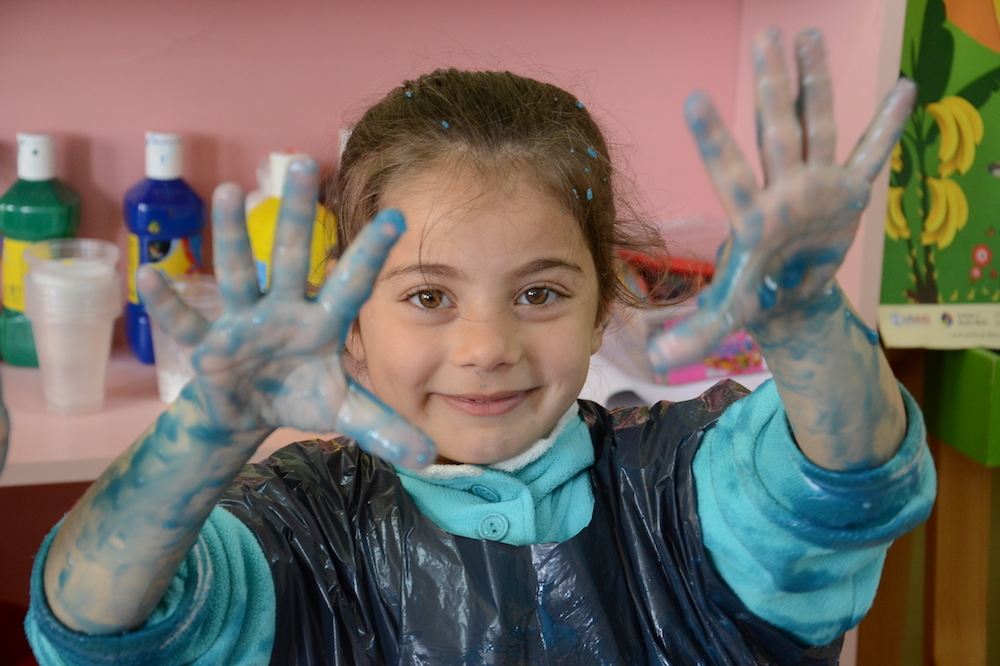
Child nutrition (Early years), Early childhood development, Learning through play (Early years), Safe pregnancy and birth
As part of Theirworld's #5for5 campaign on early childhood development, we look at the role of play in learning cognitive and social skills and stimulating the brain.
Play is an essential part of life. For everyone. It’s the fun part that balances the stressful times.
Your life wouldn’t be the same without the element of doing things that bring you enjoyment. And this skill is learned during childhood.
We learn how to play when we are young children – we are given toys or make our own playthings. How many children have received a gift in a box and then spent more time playing with the box?
It’s in the early years that we learn to play games – either on our own or with siblings and friends. We pick up important social skills (how to share and take turns) and healthy emotional development (expressing ourselves) through play and toys.
Theirworld’s #5for5 campaign is calling on the international community to invest in early childhood development. All children need access to quality care – and that includes play as well as nutrition, health, learning and protection.
World leaders are meeting in Germany in July at the G20 Summit to agree their priorities and what they should fund. We need them to prioritise the early years and especially pre-primary education, especially for the poorest and most marginalised children.
According to a clinical report by the American Academy of Pediatrics, “Play is essential to development because it contributes to the cognitive, physical, social, and emotional wellbeing of children.”
It’s crucial in terms of brain development too.
Only last year, UNICEF and H&M launched a digital tool that shows how games and play stimulate brain development during early childhood.
The UNI_Form jacket tool has different cognitive games that feed the brain while it evolves as the child gets older.
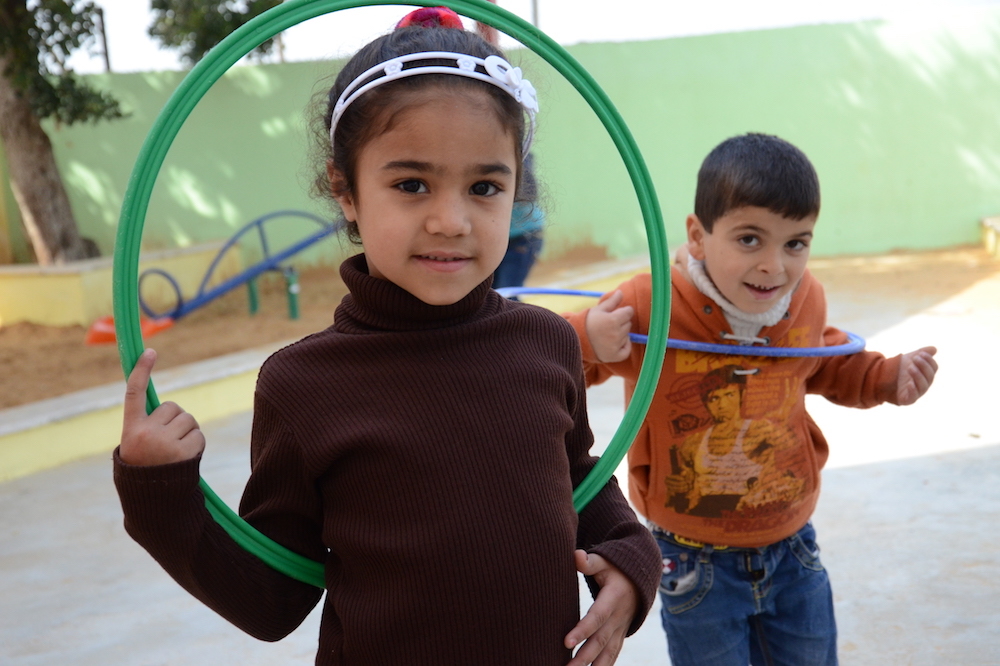
Pia Britto, UNICEF Chief of Early Childhood Development, said: “We are proud to launch this interactive tool to help give children the enrichment they need in these critical early moments of life.
“Children who experience love, proper nutrition and protection in a stimulating environment during early childhood become resilient, learn effectively and are able to help build strong, safe communities and economies when they reach adulthood.”
A child’s brain is 90% developed by the age of five – so these tender years are the most important in anyone’s life. Toys and play are an essential part of a child’s development.
Sue Firth, psychologist and author of More Life – Less Stress, agrees and explains that children develop rapidly when a toy “speaks” back to them – then they are encouraged to talk.
She said: “Toys are good for young children because they help them develop a number of different skills – like concentration, focus, manual dexterity – and builds intelligence, stimulation and development.
“Once a child learns to talk they develop the skill of asking to play with another child and therein start to learn to share their toys (which can be difficult for them especially with a sibling).
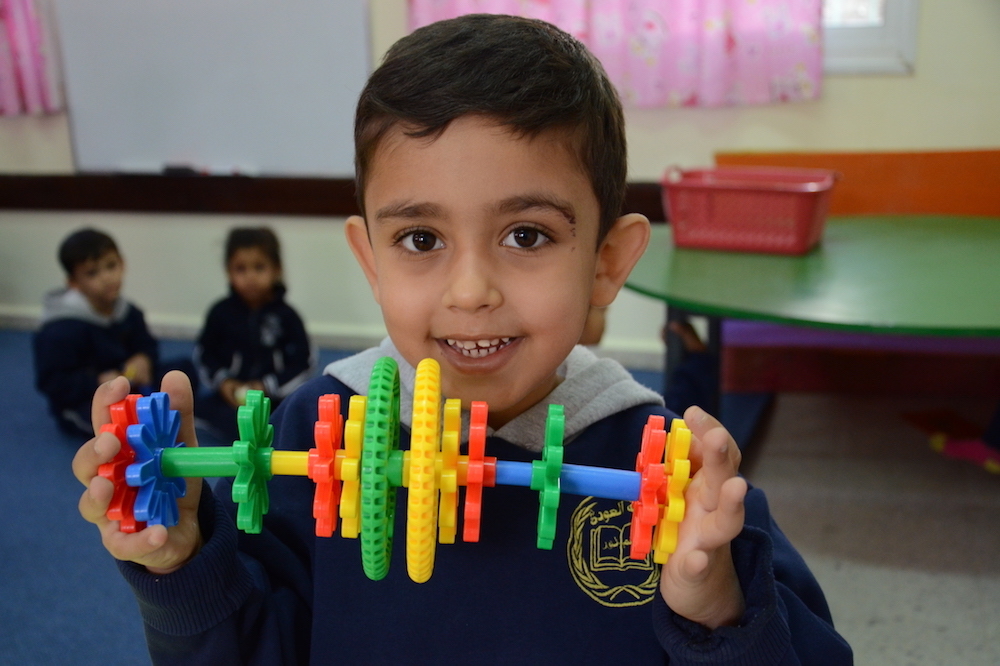
“After that they start developing friendship groups and tend to play together with simple things such as climbing, running and trying to lead and follow others.
“Play is essential to learning all sorts of skills which they need to use to relate to others – to ask for something, to say sorry when they get it wrong and to give something back.”
According to the UK’s The National Strategies, Early Years (Learning, Playing and Interacting – Good Practice in the Early Years Foundation Stage), babies and young children are powerful learners, reaching out into the world and are naturally drawn to play.
“Play is recognised as so important to their wellbeing and development that the right to play is set down in the United Nations Convention on the Rights of the Child (1989), and play is a fundamental commitment within the Early Years Foundation Stage.”
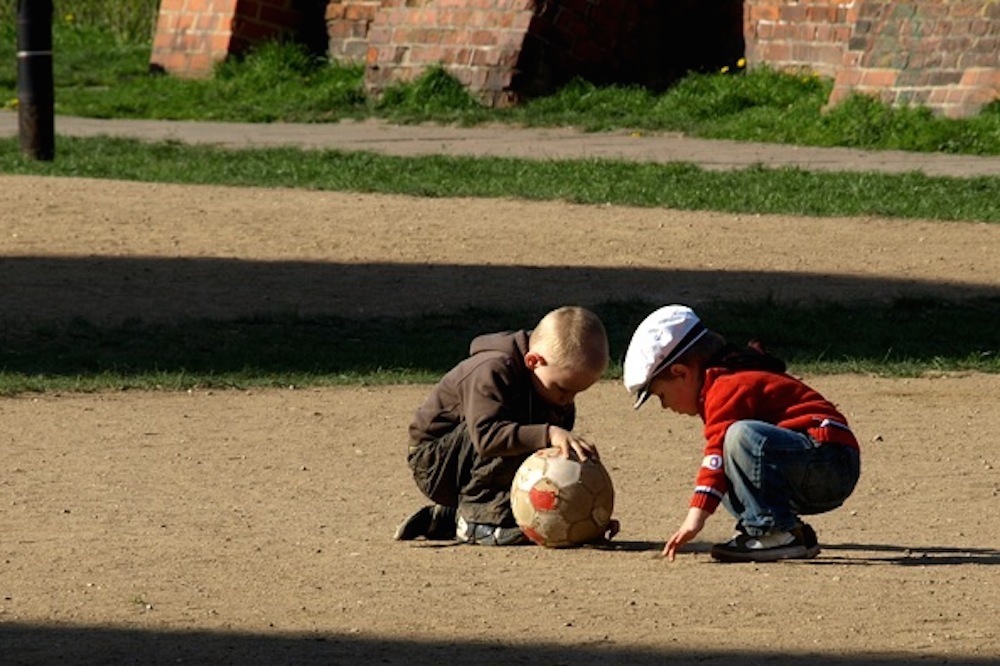
So while play is essential, are toys? What if there is little access to toys – through poverty, war or abuse – would this affect a child’s ability to play?
Sue Firth explained: “Play is pretty instinctual. Only if a child is bullied or constantly prevented from playing would they learn not to.
“This might happen if a child was particularly noisy and repeatedly asked to be quiet.
“At certain times in our history we have had very little to offer children, like during the war. But then arguably they were better at play because they learned to use everyday items and enjoy them.
“Instead of a ball, they’d throw sticks and catch them or watch them drift downstream in the water.
“I saw a young girl of three yesterday with a ball and put her doll in a sitting position to catch it. She was absolutely delighted when the ball hit her doll as if she’s caught it. In this little girl’s mind, her doll was alive.
“Even without the doll she’d have played because young children make up someone to play with in their minds.”

More news

MyBestStart programme gives young girls the education they deserve
